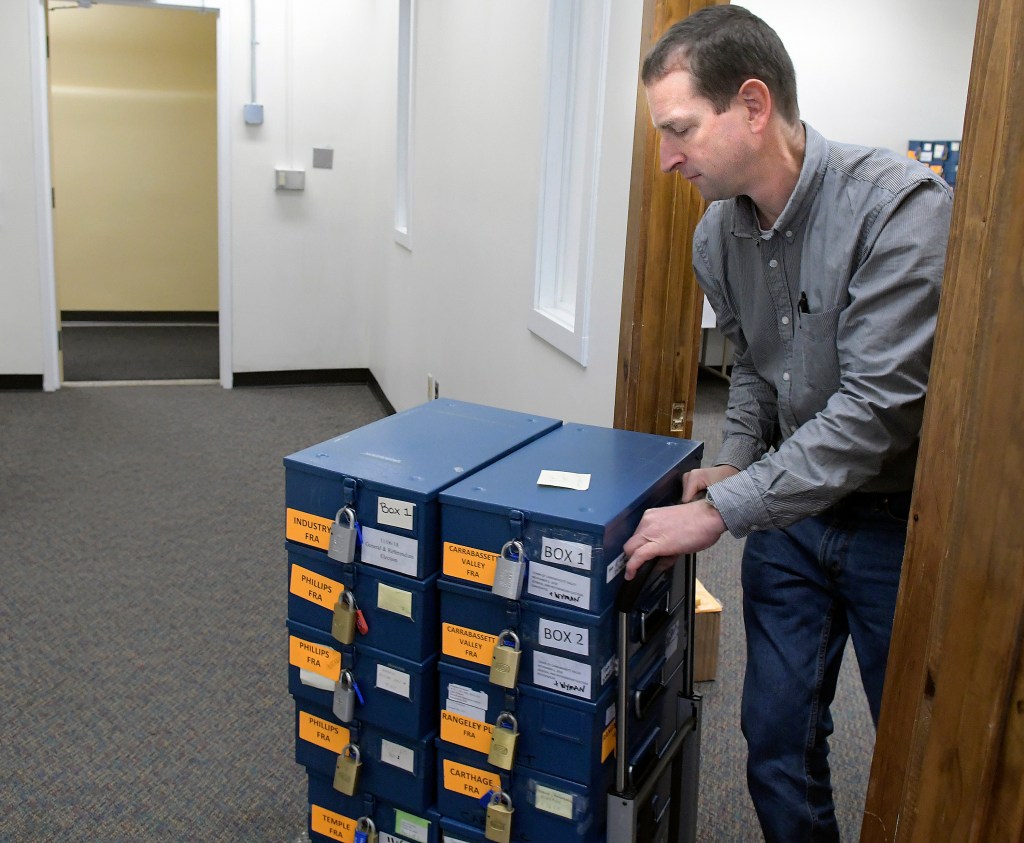The vote-counting now being conducted in Augusta by the Secretary of State’s Office, which will determine the outcome of the 2nd Congressional District race, is what Mainers wanted — and it’s working just as it should be.
The campaign of Republican Rep. Bruce Poliquin, who held a slim lead over Democrat Jared Golden heading into the tabulation of ranked-choice votes, raised concerns on Saturday about the handling of ballots.
Secretary of State Matthew Dunlap, however, said he did not received any official complaints from the campaign over the weekend, nor has he seen evidence of poor ballot security.
We expect that any irregularities will be fully investigated and the results will be transparent. The campaigns will have the opportunity to challenge the results, and be heard in court if necessary.
It should be noted that Maine elections are well-run and open — there are layers of checks to make sure ballots are counted correctly, and recounts have confirmed the overwhelming accuracy of results. The counting of ballots is taking place out in the open, in front of witnesses from both sides.
The comments from Poliquin’s camp, in line with others against ranked-choice voting made during the campaign by the candidate and other Republicans, seemed designed in part to undermine confidence in the ranked-choice voting system, which is being used in a statewide general election for the first time anywhere in United States.
Ranked-choice voting may be new for Congress, but it has been used throughout the country in local races, including for Portland mayor, and has survived challenges in federal and state courts.
Maine voters have heard all the arguments against ranked-choice voting and have twice voted in its favor, including in a June people’s veto referendum that effectively overturned the Legislature’s attempt to scuttle the ranked-choice voting law approved by voters two years ago.
The June vote opened the way for ranked-choice voting to be used in Maine’s federal races this November; the 2nd Congressional District race was the only one close enough to need it.
Out of around 300,000 ballots cast in that race, 24,000 went to independents Tiffany Bond of Portland and Will Hoar of Southwest Harbor. Their second-place votes (and in some cases third-place votes) will now decide who — Golden or Poliquin — goes to Washington.
Bond and Hoar were deep long shots, and voters knew this. However, with ranked-choice voting in place, voters also knew they could rank Bond or Hoar first without taking a vote away from the major-party candidate they favored.
That also means that the ultimate winner will best represent the wishes of 2nd District voters, having not only taken a large chunk of first-place votes but also enough second-place votes to win.
Poliquin’s spokesman said this weekend that his candidate “won Election Day” and that “any other federal election across America this process would be complete.”
But those aren’t the rules of this race. Whatever the final result, it will reflect the will of Maine voters in two important ways — first by following the ranked-choice voting law passed by voters, then by choosing a victor who best matches the electorate.
Send questions/comments to the editors.


